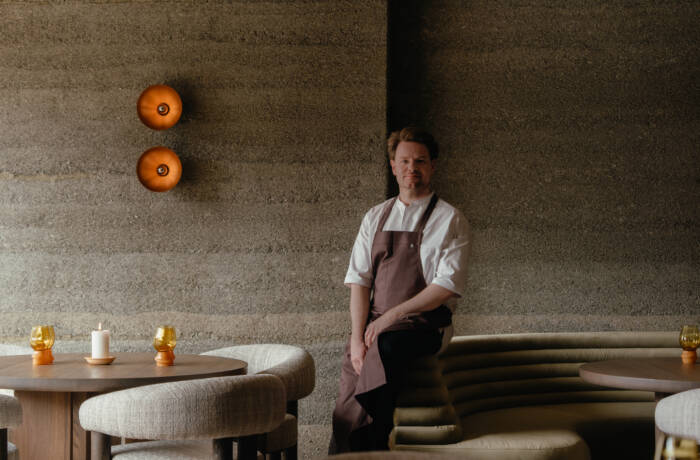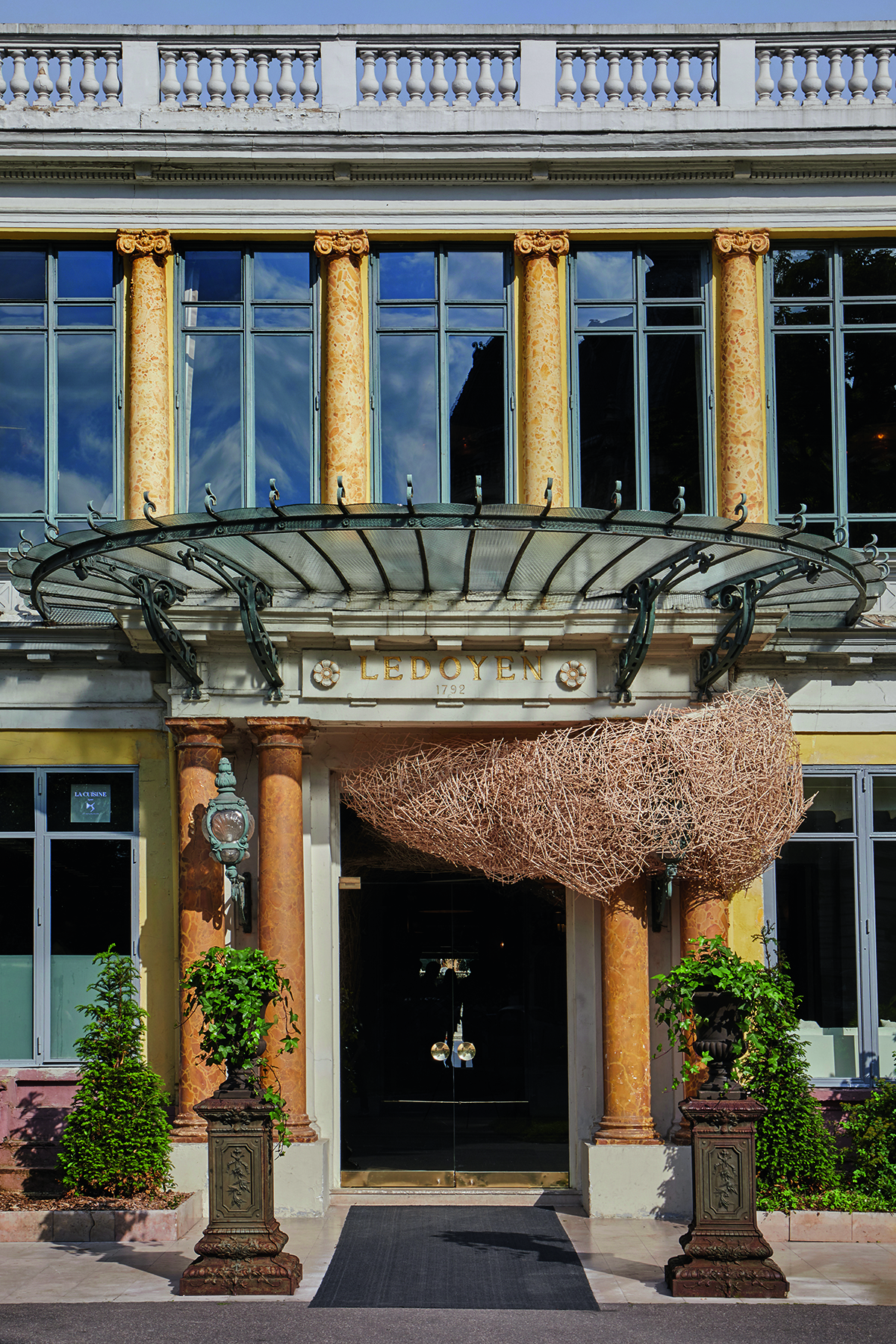
The entrance of Pavillon Ledoyen with an installation by Tadashi Kawamata
Yannick Alléno is one of France’s top chefs, famous as much for his drive and ambition as he is for his expertise with sauces. He is redefining haute cuisine with a combination of playful and seriously researched innovations while challenging the classics. Alléno is also introducing a revolutionary new concept of bespoke dining at his flagship restaurant, Pavillon Ledoyen, in Paris.
LUX: Tell us about what is going to change at your restaurants.
Yannick Alléno: I think that the luxury, first-class restaurant has to think about the way it picks its customer, so I created the ‘conciergerie de table’. The Michelin concept is that for three stars, it’s worth making the trip, taking the plane, but the restaurant with a ‘no choice menu’ is over. Today, the customer’s freedom is very important. Of course, the creativity is fantastic, but when you are a customer, you would like to make your own choices.
Follow LUX on Instagram: luxthemagazine
LUX: Is this thinking just for you or is it going to be a trend everywhere?
YA: I think we need new models, even for the staff. Pastry chefs are stars now, but you miss 30 per cent of the restaurant when you say that – you are missing out the service staff and it is the service that has to be at the centre of the conversation today. Our vision is to push them. We have to work on the education of service staff in their schools. We are changing the way we cook for our customers. They often want the menu dégustation, but we must go deeper with their choices. For example, the concierge calls you and introduces himself as your host when you come to Paris. He needs to know why you’re coming – it could be a special occasion, such as your wife’s birthday. He would ask what type of flower she likes, and we would arrange to have some for her. You could say that your son is allergic to certain things, which needs to be discussed. It is easier to speak about these things in private and knowing them in advance means the chefs can work on them. These are the fine details you can get with this new way.

Chef Yannick Alléno
LUX: Can this only happen at three Michelin-star-level service?
YA: For the moment it’s a premier-class treatment. There is another advantage in that the same food is ordered for each table – you don’t have multiple preparations. The écologie, the financial way of the restaurant is very important.
LUX: Why hasn’t this happened before?
YA: There was a development in the 1970s and ’80s, which was a time of new ways of making food and plates became more and more sophisticated. Now, it is a time to think differently again and create the next generation of those kinds of restaurants. Service in the service of taste – this is how I would explain what we have to do.
LUX: So, you could have 60 couverts, each of them with a different dish?
YA: Yes, but the difference is that the energy in the kitchen is more controlled – you know in advance what you have to do, you have the right information. Instead of different information for 12–15 tables, and the chef going crazy, now they have in advance any details and know the situation for tables. When people arrive at 8.45pm, immediately the food is on the table, and you’re happy that the champagne is ready at the perfect temperature. You know it is all in good hands.
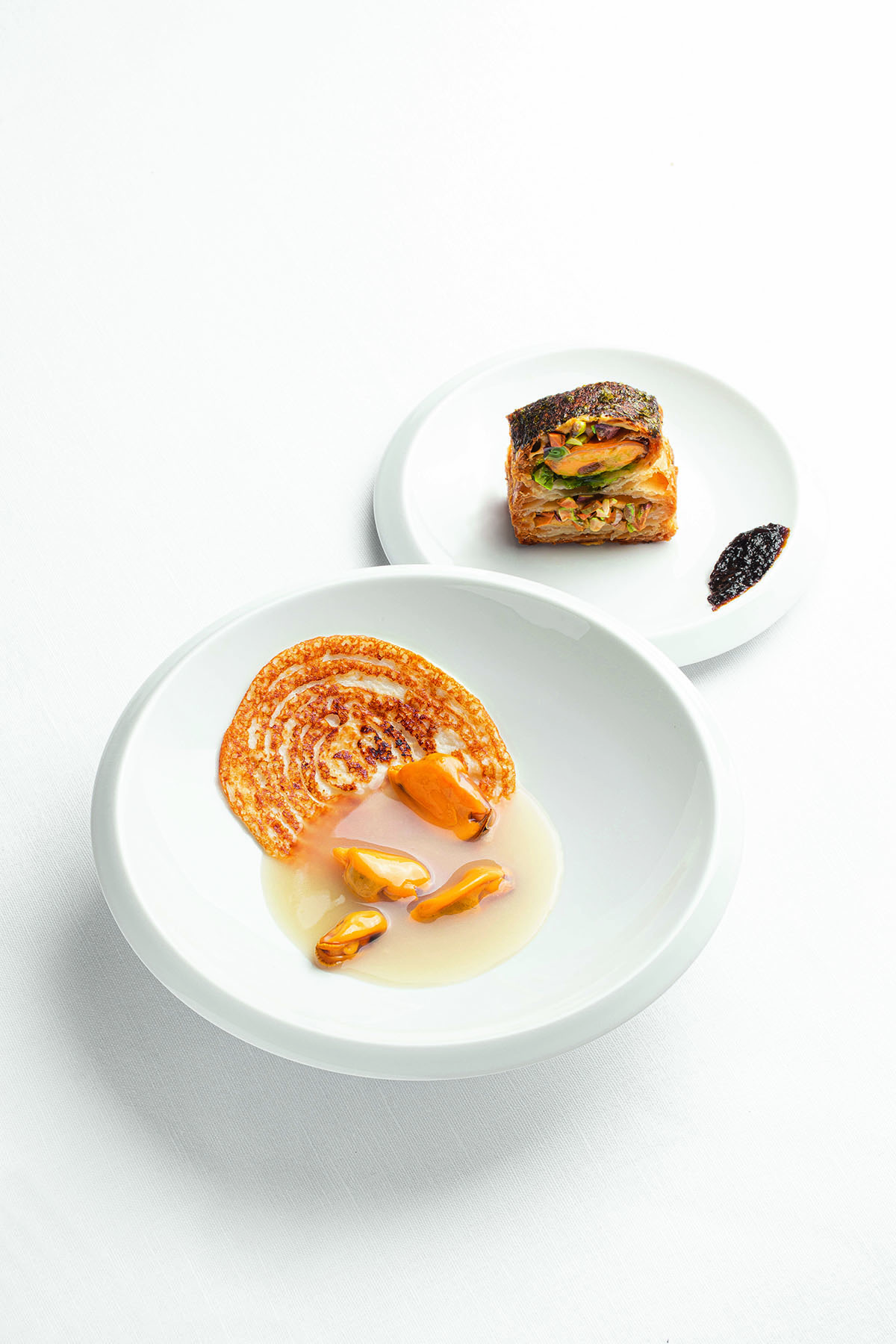
A dish created by Alléno for the Pavillon Ledoyen
LUX: Do you expect that you will start to invent new dishes in response?
YA: Yes. Let’s talk about a chicken dish. I can say to a chef, “Roast that chicken for our customers”, so two days before the customer dines I put cognac and vin jeune in the chicken’s mouth, and the inside becomes very perfumed. I don’t take anything out, I preserve everything in the kitchen. Before, I wouldn’t know how many chickens I’d have to save for one night, so I’d have to prepare it in advance. Today, I have time to cook the chicken for you. I want you to tell me it was the best chicken of your life – this is the key. In some restaurants, you don’t remember the taste – maybe the show, but not the taste. I prefer to give you a memory of the taste.
LUX: Can a new sauce be created by instruction, or is it completely personal?
YA: Sauce is the ‘verb’ of French cuisine. If you don’t have the verb, you can’t write the sentence. Without sauces, we can’t do any of our dishes. Sauces, for me, are 80 per cent of the success of your plate. You have to know how to make sauces, like a grand béarnaise. Creativity has to be founded on the real basics – the chef has to know how to create a fantastic base. We have just created the École de la Sauce. I say to the chefs and the professeur, it’s better that the young chefs learn the sauces first. A fantastic sauce will make a fantastic memory. This is the key to creativity.
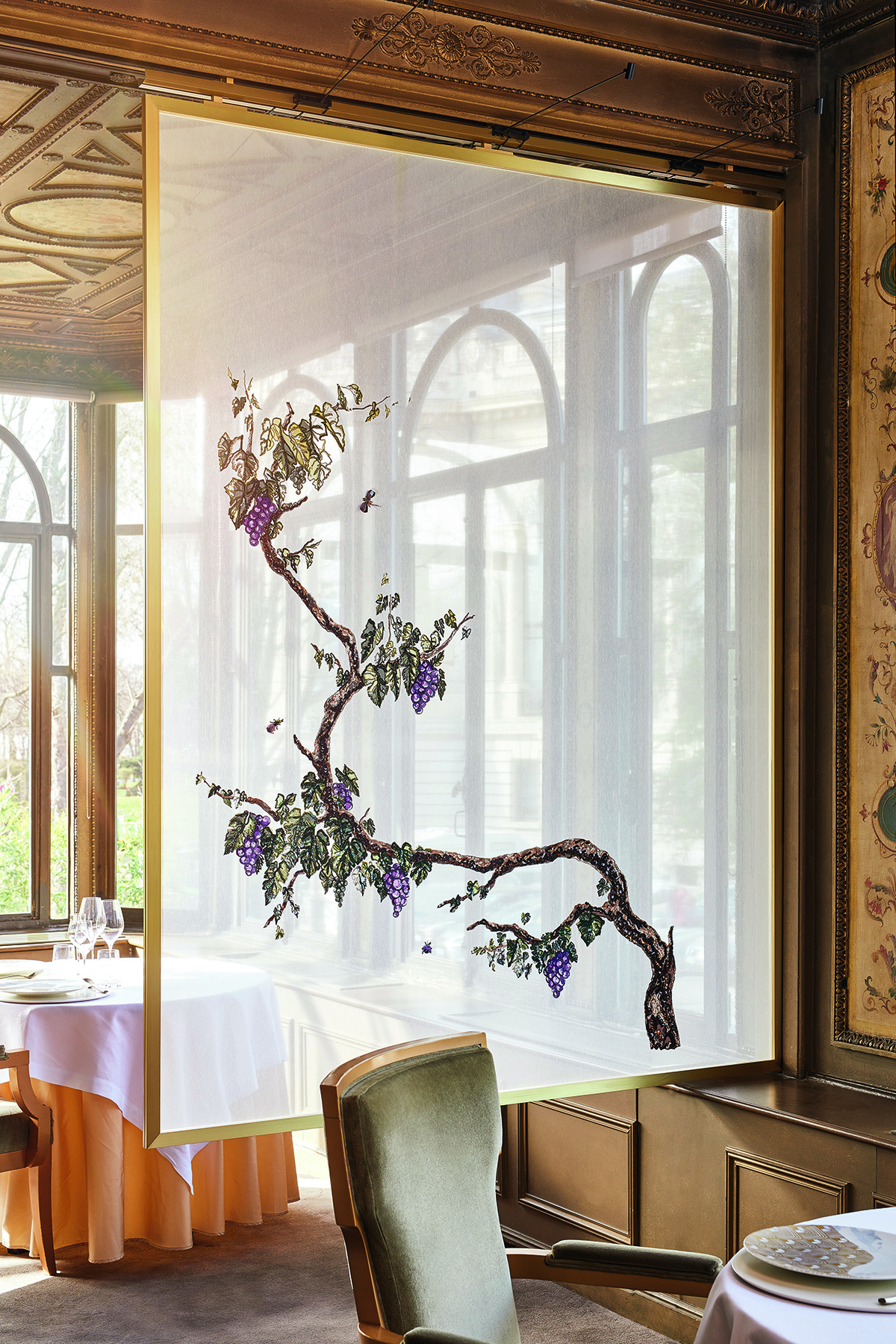
The dining-room at Pavillon Ledoyen
LUX: When you were 15 and you started working, what did you dream of?
YA: I just wanted to cook. Nothing else. You have to remember it wasn’t the same as today – now you have TV, Instagram, and chefs are stars. I just wanted to work and my parents were happy because in that job you never missed food. In this city, this job allows you to do something with your life.
Today, I have to give young chefs and young female chefs a chance. I come from the Paris suburbs and it wasn’t easy to come to the middle of Champs-Élysées. I was not from that world. Today, it’s even harder. We have to tell them that they can actually do something and that we will help.
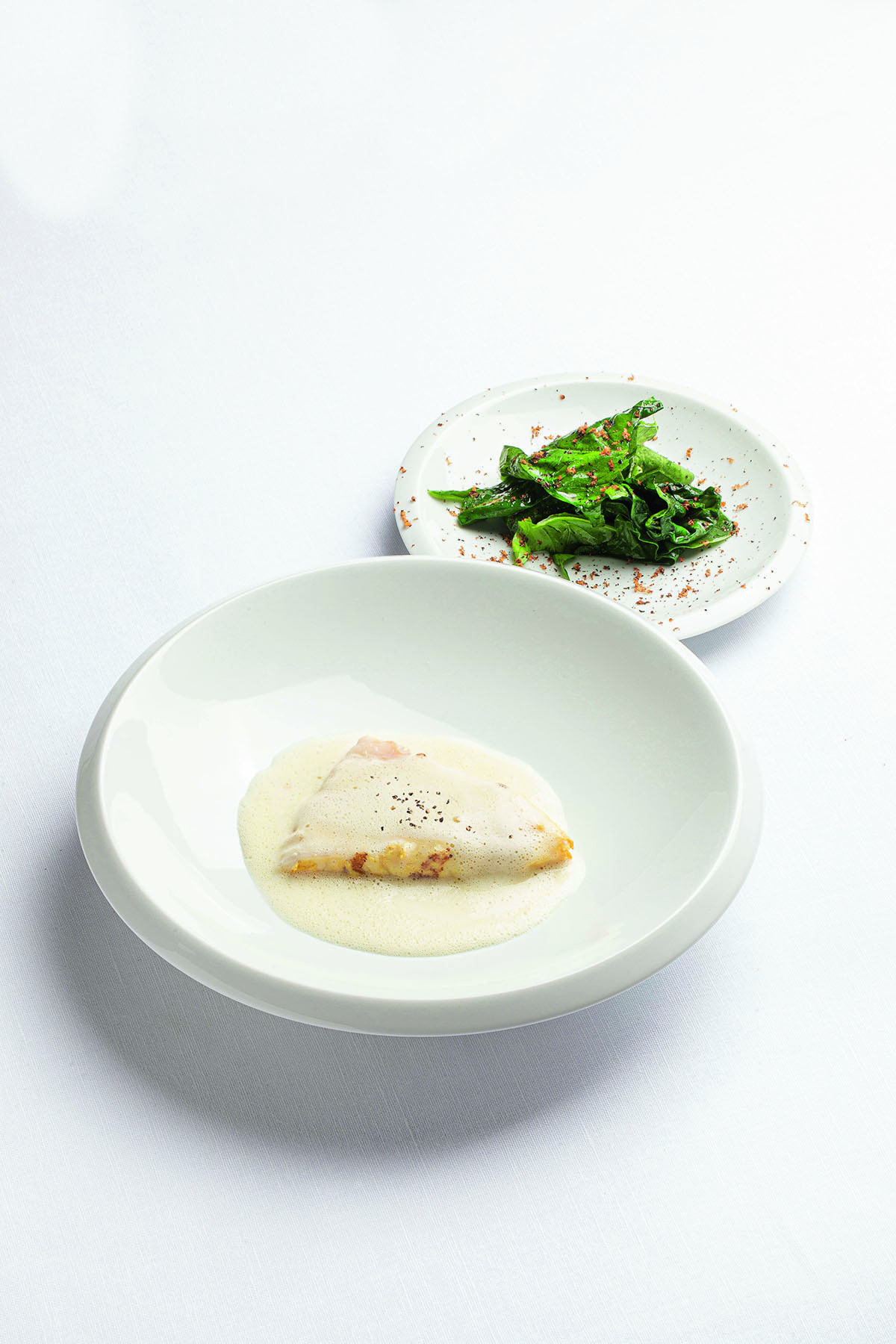 I have said to my team that I want 50/50 women and men on my team by 2023. We have to be open to anyone coming to enjoy their life in our restaurant. Of course, we have to take care of our business, but they are free to say: “Friday night, I can’t be here”, so we tell them they can come on Friday lunch and they have the opportunity to do their shift and take a night off. This is the key to helping a woman become a grand chef. There are not enough grand chefs because it is very tough to acquire the knowledge. But you can have a normal life and become a grand chef. Three days a week you can work at the three- star restaurant. I think this will be a big evolution for our business.
I have said to my team that I want 50/50 women and men on my team by 2023. We have to be open to anyone coming to enjoy their life in our restaurant. Of course, we have to take care of our business, but they are free to say: “Friday night, I can’t be here”, so we tell them they can come on Friday lunch and they have the opportunity to do their shift and take a night off. This is the key to helping a woman become a grand chef. There are not enough grand chefs because it is very tough to acquire the knowledge. But you can have a normal life and become a grand chef. Three days a week you can work at the three- star restaurant. I think this will be a big evolution for our business.
Read more: Chef Rasmus Kofoed: The Vegetable King
LUX: Has this last year, with the pandemic, softened you?
YA: Yes. How can I accommodate disabled people in my restaurants? We have to be a better restaurant. Not in terms of food, but in terms of social consideration. We have a lot of young chefs with motorbikes and one of them could have an accident and end up in a wheelchair. I’d never thought of making a space for him. Being disabled doesn’t mean that he can’t learn to cook. Why don’t we make a space for him to create his dishes? If we were to close the door because he’d had an accident, what kind of people would we be?
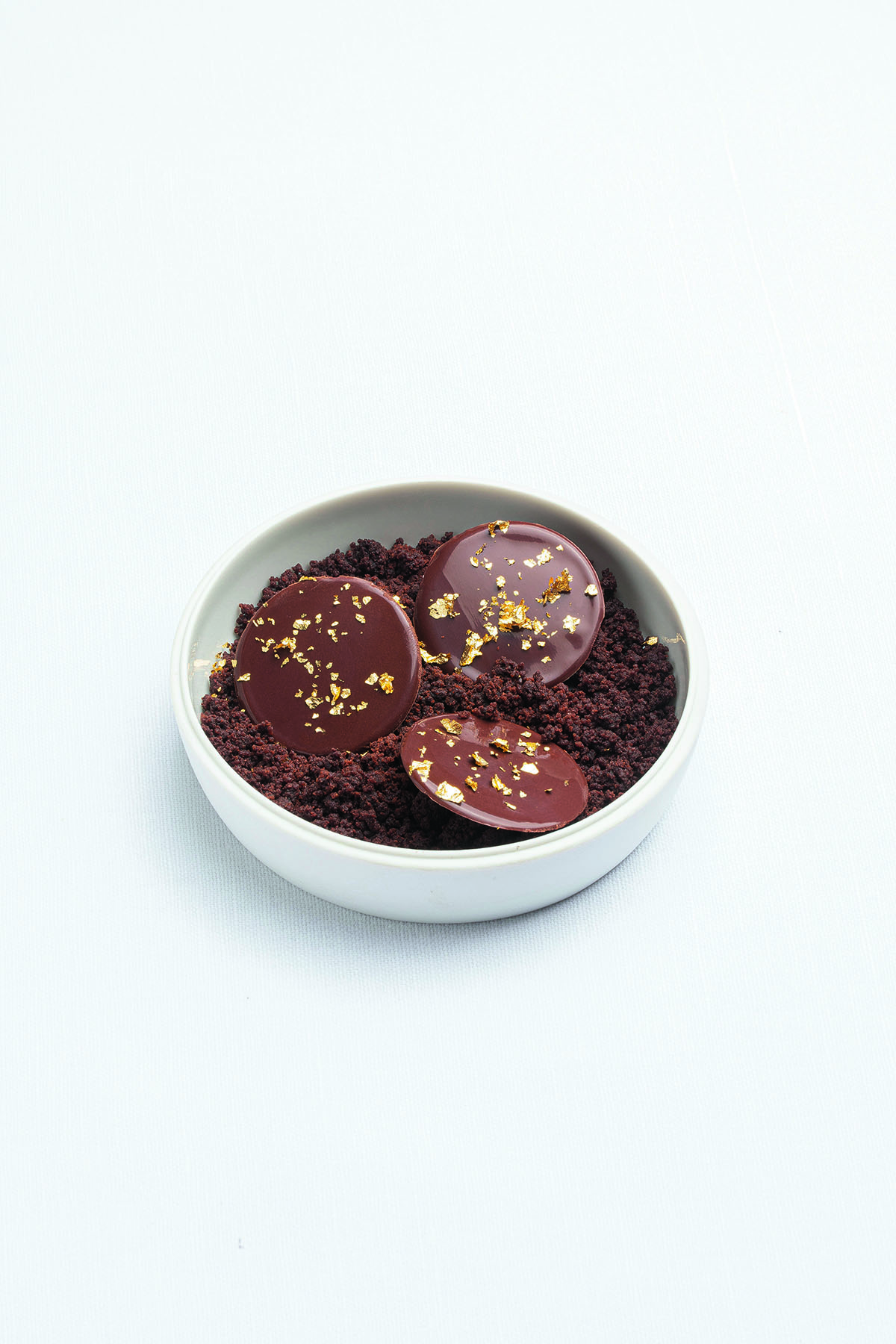
A dessert created by Alléno for the Pavillon Ledoyen
LUX: Do you think that sustainability is becoming more important?
YA: Yes. We have to push in that direction. We have to tell people we won’t buy their food because it’s not made naturally. If you sell it, you have to produce it correctly. Customers place their trust in us, and they want to be sure we can take care of this for them. It is our responsibility to do this.
Yannick Alléno is chef patron of the three- starred Alléno Paris au Pavillon Ledoyen in the French capital. His other restaurants include L’Abysse, in Paris, La Table, in Marrakech, Stay, in Seoul and Dubai, Le 1947 at Cheval Blanc, in Courchevel, and Pavyllon Monte-Carlo at the Hôtel Hermitage, in Monte-Carlo
Find out more: yannick-alleno.com
This article appears in the Summer 2022 issue of LUX

